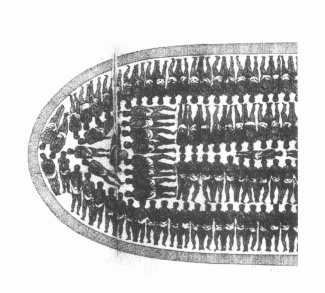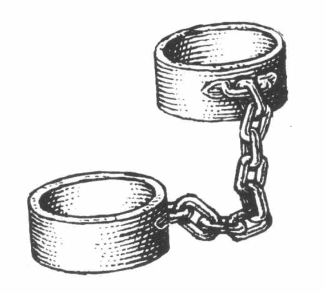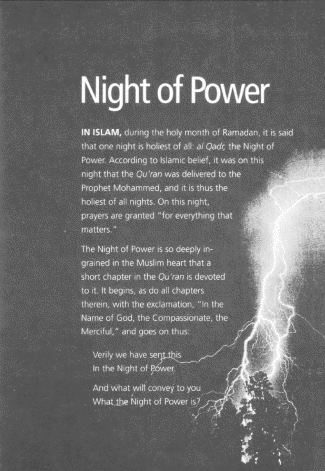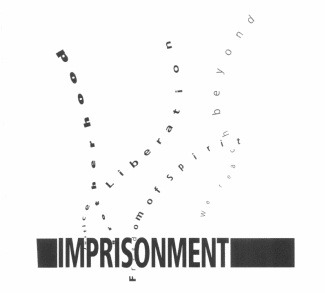Christian? Christ-like?
Whereas some doubts have arisen whether children that are slaves by birth, and by the charity and pity of the owners made partakers of the blessed sacrament of baptism, should by virtue of their baptism be made free, it is enacted that baptism does not alter the condition of the person as to his bondage or freedom; masters freed from this doubt may more carefully propagate Christianity by permitting slaves to be admitted to that sacrament.
-- Statutes at Large of Virginia. Act III (1667)
For centuries in America, the term "Christian" has been virtually synonymous with "white." It was used not so much to distinguish believers from unbelievers, but civilized, light-skinned colonists from uncivilized, dark-skinned natives -- the so-called primitive Africans, savage Indians, and other such heathen. It was a convenient spiritual underpinning for the sociopolitical economic order, that is, the "order" of white supremacy and domination. In such a context, the conversion of a non-white to the dominant, European faith meant next to nothing, for what did it matter what faith lived in the heart of a man, if his skin remained black or red?
Virginia's Act of 1667 was no anomaly. A similar act became law shortly afterward in South Carolina, and in another colony, an act passed in 1690 declared quite openly that "no slave shall be free by becoming a Christian." And so, new generations of Christians were baptized, and new generations of preachers, holding them in the thrall of a system that made reading the Scriptures for themselves a capital crime, continued to intone submission: "Slaves, obey your masters."
What did "Christianity" mean to those tens and hundreds of thousands of men, women, and children brought to our shores in shackles from the west coast of Africa? What did it mean to those hardy survivors of the dreaded Middle Passage who were forced to learn a new, foreign language and forbidden to speak their own tongue under threat of the lash? No less important, what does it mean today, to their great grandchildren, now legally free to practice the religion of their choice?
Should Afro-Americans praise the god of men who brought their forebears here in fetid, feverish holds? A god whose people wiped out all but the last vestiges of a native population? A god of invaders and slavemasters? Should anyone?
Formed in the age of Roman imperial supremacy and Palestinian servitude, Christianity became, in America, the faith of the slavemaster, the alleged belief of the rich, the protector of the propertied. For the slave, though, it was more farce than faith; in his eyes what was truly worshipped by all was wealth.
Indeed, "Christianity" became cultural shorthand for the status quo, the existing system of naked, race-based oppression. The fiction that the Euro-American conquest of the New World was motivated by efforts to "convert" indigenous peoples, or that African slavery was necessitated by a desire to bring "the gospel" to the "natives" is rebuffed by the hand of history. One need only examine the past five centuries from a native perspective -- centuries that brought devastating disease, bloody persecution, rampant alcoholism, and ultimately, confinement in concentration camp-like reservations -- to understand why the god of the pale-faced invaders seemed less a Great Spirit of goodness than a demon of destruction.
We have already seen above that even conversion had no real impact on the convert's state of bondage. As generations yet unborn were to remark, with a truth that resonated equally well for one of African descent as for the native American: "When the Europeans came, they had their Bible and we had our land; now, they have our land, and we have their Bible."
Did the native or the slave really expect his master to sacrifice property and power on the altar of piety? The story of the Cherokee, derisively referred to as the "White Indians," reveals a disturbing answer. [1]
In religion, education, cultural and political life, and even architecture, the Eastern Cherokee adopted European forms of life to a far greater degree than any other tribe in North America. By the early 1800s, they were building wood and brick homes; they also founded a capital, New Echota, organized a Cherokee Supreme Court, and published a newspaper in an alphabet developed by their famed linguist Sequoyah, a.k.a. George Gist.
Baptist and Moravian churches converted significant numbers to their faiths. The Cherokee were, relatively speaking at least, a wealthy people, with successful crafts and farming operations and hundreds of thousands of head of cattle, horses, and mules. So similar were they to whites that they owned a population of several thousand black slaves. Here was a tribe that was by all measurements a "civilized" tribe: it was Christian, literate, propertied, and law-abiding.
Cherokee "progress" did not come without a cost. Aside from the fact that it meant the destruction and replacement of their own indigenous culture by a European replica, it fueled the resentment of a white economic elite driven by supremacist and expansionist goals. In addition, poorer colonists agitated against their "red" competitors, and the government intervened. Before long, the Cherokee became victims of the same white greed that was to destroy every other native tribe.

Legal victory brought new hopes to the Cherokee in 1832, when they brought suit in the Supreme Court and won a judgment against Georgia, whose "Indian statutes" were declared unconstitutional and thus unenforceable. In Worcester & Butler v. Georgia (1832) the Court held:
The Cherokee Nation then, is a distinct community, occupying its own territory, with boundaries accurately described, in which the laws of Georgia can have no force, and which the citizens of Georgia have no right to enter but with the assent of the Cherokees themselves or in conformity with treaties and the Acts of Congress.
Yet President Andrew "Indian Killer" Jackson refused to follow the ruling and was quoted by journalist Horace Greeley as saying, "[Chief Justice] John Marshall has made his decision; let him enforce it now if he can."
Apparently he couldn't. Already the same year, large tracts of Cherokee ancestral lands were surveyed, divided up, and assigned to white settlers by lottery. By the end of the decade, Georgia's entire Cherokee population was decimated. Evicted from their lands under force of martial "law," whole settlements were marched off to faraway Oklahoma under military escort, straggling along a wintry Trail of Tears whose hardships cost them (and their black slaves, though these were never deemed important enough to count) thousands of lives.
"Civilized" and "Christianized," the Cherokee still lost everything dear to them -- their ancestral grounds, their homes and livestock, their children, their women, their elderly, their sick -- all because other "Christians" wanted their land. Yet to white minds this unholy program of "resettlement" entailed no losses: it was simply another step in building the foundation on which the very existence of most southern and western states rests.
Today, the Cherokee exist only as a remnant of the past, their reservations an attraction for passing tourists. As for the descendants of Virginia's Christian slaves, they are now free, but the vast majority are still dutifully Christian. True, their churches have remained distinct from white churches in many ways. But those cultural trappings aside, one is tempted to wonder whether the black church doesn't carry the selfsame mission as its white counterpart -- and whether the vision that guides it isn't the same.
Certainly there have been men and women in every generation who have raised their voices to rouse their fellow brethren from stultifying slumber. In the fifties and sixties, one of the more notable of these, Dr. Martin Luther King, Jr., brought a new vitality to a church that up till then had largely sought the solace of martyred silence.
King's church was crippled not only by white supremacist terrorism, however. Equally crippling was its own counsel of quietude. Even in the face of naked injustice, there were clergymen -- most white, but some black -- who sought to emasculate his message: "Slow down!" "Hush, don't create such a stir!" "Wait for the right time." In a time of unprecedented struggle against the beast of American apartheid, they chose to stand firm in support of the status quo, to sprinkle on the meek and the dissatisfied alike the unholy holy water of centuries.
King's legacy lives on, but it has been twisted. His name and his words have become tools in the hands of the cleverest amongst his enemies to attack, belittle, and deny the very people he sought to serve. His dreams -- eloquently set to paper in speeches or essays such as Letter from a Birmingham Jail -- have been transformed, in the mouths of the powerful, into nightmarish excuses for new chapters of negrophobia, and into attacks on those few, limited, forward steps such as affirmative action, which -- if it did nothing else -- was at least able to open doors previously sealed by judicial decree.
In our own time, Jean-Bertrand Aristide has noted how Haiti's history has been marked by two imperialisms, political and religious, and how the second has resulted in the development of a theology that serves only to zombify the spirit of the people in order to further subjugate them.
Jesuit scholar Ignacio Martin-Bara has used the Latin-American context -- in particular the bitter milieu of countries scarred by recurring civil strife -- to similarly illustrate the continuing use of religion as a weapon of psychological warfare against the poor and oppressed. [2] Writing of the dueling purposes of the evangelical church and the Christian base communities in Brazil, he points out that whereas the latter have "gradually assumed a critical tendency" that questions the existing social order, the former has retained a "pentecostal posture of submission, marginalizing its converts and driving them away from any form of protest." He goes on:
[In] the banana plantation zones of Guapiles, Costa Rica, where aggressive labor unions have traditionally held sway ... the "Christians" (as they call themselves) not only do not join political or labor organizations but also oppose the struggles of working people and frequently work as scabs or strikebreakers. These "Christians" have become the banana bosses' trusted workers, and the bosses throw all their support behind the local evangelical churches and pressure their workers to join them.
-- Writings for a Liberation Theology, 142
Clearly, no matter how long ago the stone of white religious hypocrisy was cast into the waters of black and native consciousness, we still live in its ever-widening ripples.
At root, the message of the Bible is one of liberation. In the Old Testament it is exemplified by the exodus of the Jewish slaves from Egyptian bondage; in the New, by the coming of a Messiah who (it is promised) will save his people from the yoke of oppression.
Until those who today call themselves "Christians" acknowledge the carnage that has been carried out in his name, it is hard to see how they cannot but continue to commit deeds of devastation and evil. In his name they go on fighting wars of avarice, campaigns of greed, legalized land-theft, and regulated robbery; they go on firing their holy hatreds against the rest of the world. In the very shadow of the cross, they continue to pillage and rape. And in the name of one who, they claim, came "to set captives free," they continue to enslave.
_______________
Notes:1. For documentation of Cherokee history, see John Ehle, Trail of Tears: The Rise and Fall of the Cherokee Nation (New York: Anchor/Doubleday, 1988).
2. Fr. Martin-Baro, five fellow priests, and their housekeepers were assassinated in November 1989 by a US-trained and -armed military death squad in El Salvador.




